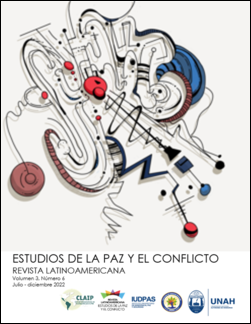The exclusion of indigenous peoples and communities from the radioelectric spectrum in Mexico
DOI:
https://doi.org/10.5377/rlpc.v3i6.13770Keywords:
Radio spectrum, concentration, concessions for social use, indigenous communitiesAbstract
This work is the result of a qualitative analysis carried out within the framework of the theoretical perspective of the Political Economy of Communication. It documents the inequality in the distribution of the radio-electric spectrum for concessions destined to offer the sound broadcasting service in Mexico. The analysis period of the study was from 2014 to 2018. Being August 13, 2014, the date when the Federal Telecommunications and Broadcasting Law (LFTR) and the Constitutional Reform in Telecommunications and Broadcasting came into force. 2018 corresponds to the year in which Enrique Peña Nieto, promoter of the Reform, concluded his presidential six-year term. Official documents issued by the regulatory authority of the broadcasting and telecommunications sector in Mexico, the Federal Institute of Telecommunications (IFT) as well as the articles corresponding to the subject of the Political Constitution of the United Mexican States and the LFTR were analyzed. A concentration of 1,275 commercial radio stations managed by 15 consortiums, in contrast to seven social ones belonging to indigenous peoples and communities throughout the Mexican Republic -despite the existence of 68 recognized indigenous peoples and communities in the country- are some of the results of the analysis.
Downloads
532
HTML (Español (España)) 54
XML (Español (España)) 116
EPUB (Español (España)) 114
Downloads
Published
How to Cite
Issue
Section
License
Copyright (c) 2022 Latin American Journal of Peace and Conflict Studies

This work is licensed under a Creative Commons Attribution 4.0 International License.
The journal's contents are published under a Creative Commons Attribution 4.0 license (CC BY 4.0). This license allows third parties to share (copy and redistribute the material in any medium or format) and adapt (remix, transform and create from the material for any purpose, including commercial), as long as the authorship and first publication in this journal (Revista Latinoamericana Estudios de la Paz y el Conflicto, Universidad Nacional Autónoma de Honduras - Consejo Latinoamericano de Investigación para la Paz, DOI of the work) is acknowledged, a link to the license is provided and it is indicated if changes have been made to the original. The terms of the license are available online at http://creativecommons.org.




